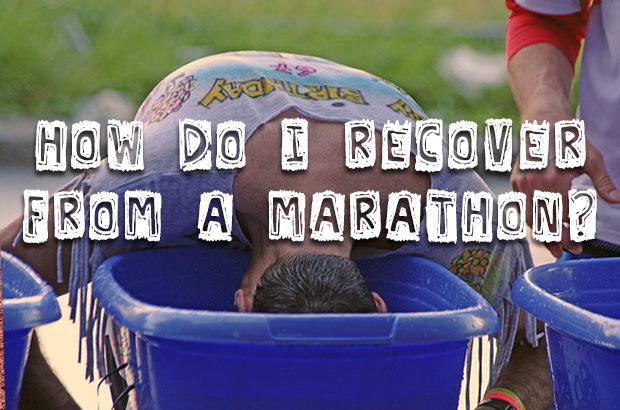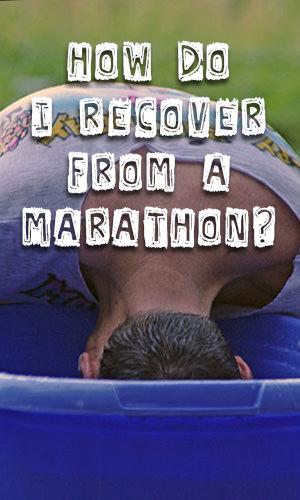
How Do I Recover from a Marathon?

Posted on 25 Aug, 2020

Get to the finish line of a marathon, and a few runners might vow to never run again. But when all’s said (and run), many competitors end up catching the running bug—and can’t wait to train for that next big race. But before they can race again, marathoners have to allow their bodies to recover from the tremendous physical accomplishment of running 26.2 miles. Here's how long to it takes a body to recover from running, plus tips for improving recovery and getting back to peak performance.
Immediately after a long-distance run, studies show running economy (i.e., how efficiently the body uses oxygen) is severely impaired. While the hard work might appear to be behind us, the body is still struggling to keep on truckin’ and tend to damaged muscles.
While the hard work might appear to be behind us, the body is still struggling to keep on truckin’ and tend to damaged muscles.
So what’s the right formula for R&R? While myths like “take one day of rest for each mile raced” persist, there’s no science to back them up. Some experts do, however, recommend resting for three to seven days after a marathon to allow muscles to recover, before gradually easing back into running. The reason for the range? Muscle recovery is highly variable between individuals, because how muscles react to stress differs from person to person.
For the most part, individuals can expect soreness from the rebuilding cycle to set in about 24 to 48 hours post-race, peaking after 72 hours before tapering off. The key: allowing the muscles to fully recover, properly tending to any new or nagging injuries (doctor’s orders!), and, once the body’s good and ready, starting in again with good running form.
Your Action Plan
It may be tempting to veg out for a while after completing a marathon—and of course, you've earned the right to! But for those who can't wait to run again (or at least walk normally instead of hobbling), there are more than a few scientifically proven ways to speed recovery:
 1. Train wisely.
1. Train wisely.
The better the preparation, the smoother the recovery. If the distance and pace of the race is comparable to what’s done in training, the muscles will have likely already adapted to that level of stress—minimizing tearing and soreness.
 2. Roll out.
2. Roll out.
For some inexpensive DIY relief, try foam rolling to help alleviate built-up muscle tension and increase flexibility . A golf or tennis ball should also do the trick on tough spots!
 3. Eat right
3. Eat right
To help the muscles recover as quickly as possible, seek out protein-rich foods. Research also suggests chocolate milk can work surprisingly well as a recovery drink due to its optimal ratio of carbs to protein . Of course, don't forget some good old-fashioned H2O as well to stay hydrated!
 4. Ice, ice, baby.
4. Ice, ice, baby.
The pros do it—why shouldn’t you? It may sound brutal, but immersing the legs in a chilly ice bath has been proven to significantly reduce muscle soreness and help maintain strength and flexibility.
 5. Compress yourself.
5. Compress yourself.
Many distance runners these days wear compression gear before, after, and even during a race. No, the 80s aren't back—those neon-colored knee socks are actually one form of compression garments, which may reduce soreness and inflammation.
 6. Get low—impact, that is.
6. Get low—impact, that is.
Whenever you ease back into physical activity, seek out low impact options to start. Greatist Expert Andrew Kalley puts swimming at the top of his post-race regimen since there’s “no impact on the body and the water is soothing on the muscles.” Another way to get on the road to recovery: an easy ride on the exercise bike. “It’ll get the legs moving again, and draws new blood to the area, which will speed up recovery,” Kalley says.
Photo Credits
Must-Read Books For Marathoners

by Hal Higdon

by Bart Yasso

by John Bingham

by Brad Hudson
 The Day After The Marathon
The Day After The Marathon Strength Training For Marathon Runners
Strength Training For Marathon Runners 5 Expert Tips for a Stress-Free Marathon
5 Expert Tips for a Stress-Free Marathon Great Mid-Run Snacks to Improve Your Marathon
Great Mid-Run Snacks to Improve Your Marathon










